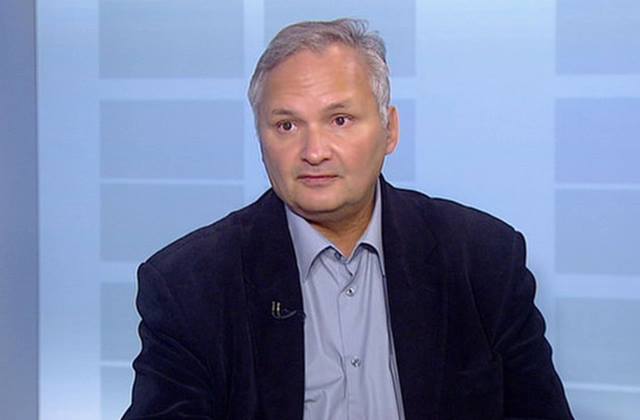Moscow-Baku-Tehran Triangle is Suspicious

Interview with Andrey Suzdaltsev, associate professor at National Research University Higher School of Economics, a leading analyst of Center for European and International Studies Research.
Iran-Russia-Azerbaijan cooperation is intensively developing, even meetings on presidential level became frequent, and another meeting is planned in August, and in Armenia-Iran relations it’s restricted within sessions of intergovernmental commissions and consultations. In your opinion, why are Armenia-Iran relations developing so slowly? Some Armenian analysts consider that Russia or Russian interest in our country prevent it.
There is no any prevention from the side of Russia, I think it’s the contrary. The issue is that Iran is a very hard negotiating partner. I can definitely state, that Moscow-Baku-Tehran triangle is suspicious. It’s an old story linked to the fact that relations between Iran and Azerbaijan are historically rather complicated and the fact that each 2 of 3 Azerbaijanis live in the territory of Iran also complicates the situation, as they have formed a diaspora there. And it’s unpredictable to say that such a trilateral Russia-Azerbaijan-Iran format may exist.
Our main issue with Armenia is transit transportation, as Armenia is an isolated territory, it’s impossible to settle the issue with Turkey, and in case of Azerbaijan it will even be ridiculous to touch upon it, and in case of Georgia it’s very difficult. Armenia’s isolation is soluble through Iran, and the latter perfectly realizes its unique political importance, and surely, takes that fact into consideration. In this case Iran and Russia are allies, however, let me mention once again that Iran is a very difficult negotiator.
Delegations of Armenia, Iran, Georgia, Bulgaria and Greece will meet in Bulgaria in the period of July 12-13 to discuss issues referring to the perspective for the transit corridor connecting the Black Sea with the Caspian Basin. To your mind whose interests will Armenia introduce at that meeting—its own or those of the EEU?
I think mainly personal interests, as currently Russia is rather interested to make use of its trade potential, for which the main issue today is the Silk Road. And Turkey is mainly interested in the route from the Caspian Basin to Bulgaria. Russia has nothing to do here, even under the melting conditions between Moscow and Ankara.
What role may Armenia assume in the perspective of cooperation development between Iran and the EEU?
Armenia’s role may mainly be transportation, as unfortunately, infrastructures through the South Caucasus and Georgia are limited, there is a way through the ports of Caspian Basin. Recently it’s been much discussed that trade turnover with Iran should be activated, however, it’s an issue which commodities may be imported from Iran. That issue wasn’t actual, while sanctions were imposed against Iran, however, currently when it’s unsanctioned, and favorable political conditions are available, developing trade relations is a priority for Iran.
In your opinion, how should North-South Transportation corridor pass—through Azerbaijan or Armenia?
If there is such a possibility, it would better pass through Armenia. Europe also touched upon the Southern corridor through Azerbaijan-Georgia route, however, the second—Azerbaijan-Armenia corridor is available as well, which is closed due to Karabakh conflict. Moscow also faces that problem with the corridor, however, it may be developed and shaped upon their own wish. The point is by which commodities they should be filled. This is the most difficult issue.
Trade of which production may be realized?
Pistachio.
Besides pistachio isn’t anything interesting from trade standpoint?
I think no, as what is produced by Iran, the same production is made in Russia, even with higher quality, including famous Mustang cars.
In this case why is the temporary trade zone being established between the EEU and Iran? Then efforts should be exerted in the future for its regular functioning.
Iran, naturally, continues to remain a crucial partner for Russia and Eurasian Economic Union (EEU). Immense work is being performed in the field of energy, there are orders from the Republic of Iran linked to nuclear industry, supply of military equipment is implemented and etc. Iran is a serious partner both from global and regional perspectives. Iran is an actively developing state and that zone will have a serious role in the future.
Is Iran mainly an ally or a contestant for Russia, in particular, in its trade relations with the EU?
It’s neither an ally, nor a contestant. Iran is one of those few countries of he world, which pursues its own policy. They can be counted on fingers. No matter how strange it may seem, Iran is included in them. It survived severe sanctions, which closed world energy market for it. Iran, surely, makes use of Russia, it rather actively used it in the period of sanctions, however, Russia also reckons on Iran. It’s a mutually beneficial political game. Sometimes Iran is a partner, sometimes—an ally, and sometimes—a companion, i.e. relations between Russia and Iran are multilayer.
By Gayane Khachatryan

























